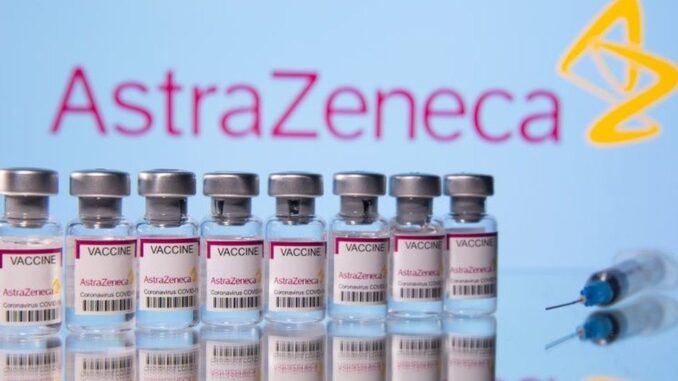
Two doses of AstraZeneca’s coronavirus vaccine are up to 90 per cent effective at stopping symptoms of the disease, according to official estimates.
Public Health England’s analysis of real-world data found the British-made jab was just as effective as a double-dose of the Pfizer vaccine.
No10’s vaccine minister Nadhim Zahawi hailed the data, saying it highlighted the ‘incredible’ importance of getting both doses of the jab.
He added: ‘There is no better weapon to send this virus into retreat than our life-saving vaccines.
‘A second dose is vital to ensure you have the strongest possible protection so we can return to normality and get back to the things we love.’
Independent experts also praised the findings, describing the AstraZeneca vaccine as a ‘key weapon’ in the global fight against the pandemic.
Dr Michael Head, senior research fellow in global health at the University of Southampton, said: ‘It is reassuring to see the data from both the Pfizer and Oxford AstraZeneca vaccines.
‘They are essentially comparable in terms of effectiveness against symptomatic disease, which is very high after two doses.
‘Oxford AstraZeneca really is an excellent vaccine. It will be a key weapon in the global rollout, and a key tool for use in lower income countries.’
It came as Britain’s medical regulator today approved plans to allow Pfizer’s vaccine to be stored in a normal fridge for 31 days before being administerd.
The rollout of the American vaccine was previously hindered by stringent rules which meant it had to be kept at ultra-cold temperatures and used within five days of being thawed.
Dr June Raine, head of the Medicines and Healthcare products Regulatory Agency (MHRA), said it would give ‘patients greater access’ to the life-saving jab.
The UK will rely more heavily on the Pfizer vaccine now the rollout has moved to under-40s, who are being advised not to get the AstraZeneca jab due to a tiny risk of rare blood clots in younger people.
END

Be the first to comment